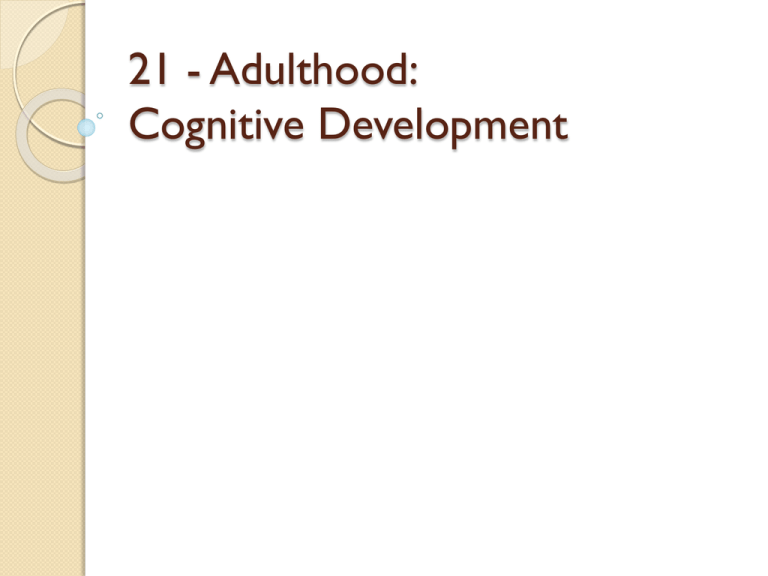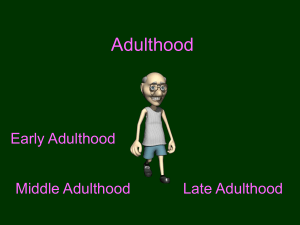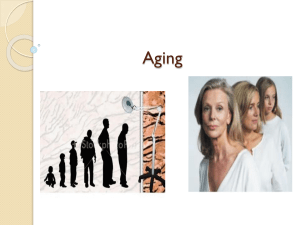Adulthood: Cognitive Development
advertisement

21 - Adulthood: Cognitive Development What is intelligence? Spearman’s “G” ◦ General intelligence ◦ One basic trait ◦ Inferred from vocabulary, memory, & reasoning Age & Intelligence IQ – Once thought to decline after age 20 Now thought to raise throughout adulthood (20 – 50) and declines at age 60, or 70, or 80. Seattle longitudinal study ◦ People improve during adulthood and decline later in life. Components of Intelligence Two clusters (Cattell) Fluid intelligence ◦ ◦ ◦ ◦ Quick and flexible Provides easy learning Good working memory & abstract thought Decreases during adulthood Crystallized intelligence ◦ Accumulated learning ◦ Vocabulary - Language ◦ Increases during adulthood Three forms (Sternberg) Analytic intelligence ◦ Book smarts Remembering things in high school and college Valued in emerging adulthood Creative intelligence ◦ Flexible ◦ Imaginative thinking ◦ Not standard or conventional Practical intelligence ◦ Street smarts Age & culture Analytic valued in high school and college Creative valued for new challenges Practical valued during adulthood Selective gains and losses Selective Optimization with compensation People select what they want to focus on ◦ E.g. Pediatric nursing (Selection) People compensate for aging or other difficulties ◦ E.g. Wear glasses or increase type size on computer (Compensation) Build their nursing expertise (Optimization) Expert Cognition (Thinking) Selective expert Intelligence increases in areas of interest Everyone has more skill and knowledge than others in what they are interested in “Expert” E.g. Brain surgeon More skilled and knowledgeable than novices Characteristics of Expert Cognition (Thinking) Intuitive ◦ Rely on past experience ◦ More intuitive, less Stereotypical ◦ Knows when to bend formal procedures and rules ◦ E.g. “Gut feeling” that this is what to do Automatic ◦ Thinking without deliberate, conscious thought E.g. Driving ◦ Process most tasks automatically Saving conscious thought for unfamiliar challenges Characteristics of Expert cognition (Thinking) - Cont. Strategic ◦ Better strategies handling unexpected problems Flexible ◦ Being creative and flexible when needed. Example = “The miracle on the Hudson” Flight Expertise and age Expertise needs time, training, ability and practice to develop Expertise can overcome some effects of age Experienced adults often use selective optimization with compensation Seattle study ◦ Intellectual functioning can increase if older adults do paid work that is intellectually stimulating





